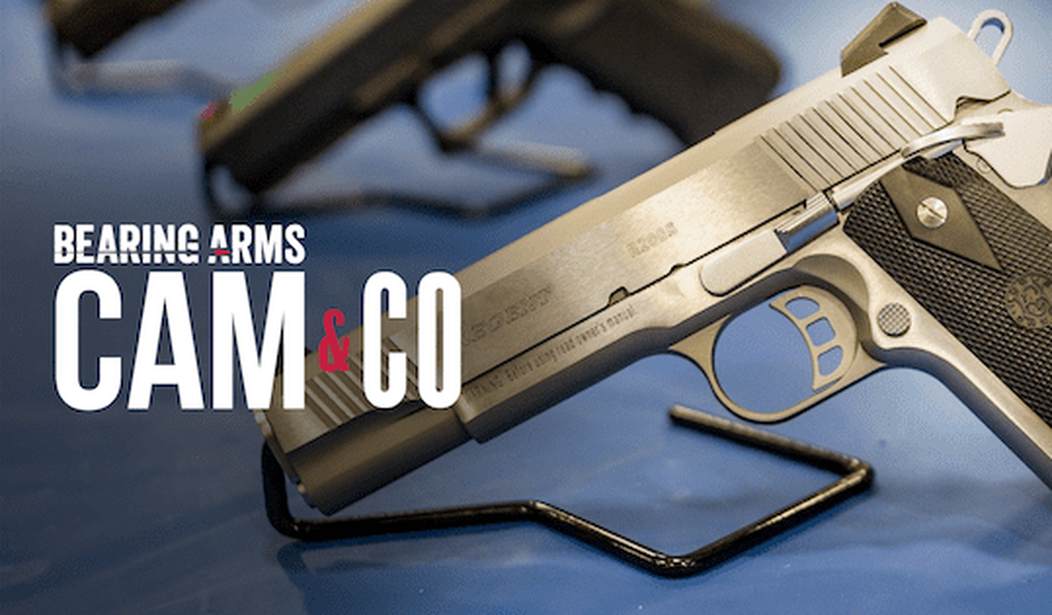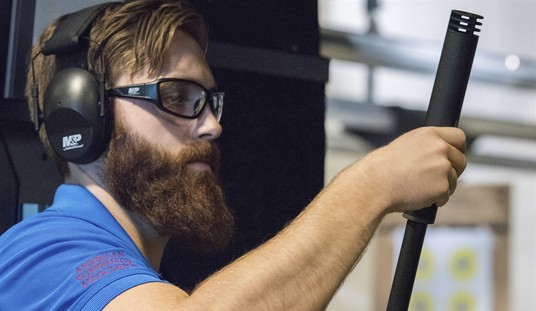The legal challenges to New York’s Concealed Carry “Improvement” Act are continuing, with oral arguments on a request for an injunction scheduled to take place before a three-judge panel on the Second Circuit on March 20th. Ahead of that hearing, groups on both sides of the debate are weighing in, including an amicus brief filed on Wednesday by a rather surprising coalition.
The Knight First Amendment Institute at Columbia University is siding with a number of 2A groups in opposing New York’s mandate that concealed carry applicants turn over a list of their social media accounts for police to peruse and look for evidence of “good moral character”; filing a brief with the Second Circuit alongside the Asian Pacific American Gun Owners Association, D.C. Project Foundation, the Liberal Gun Club, the National African American Gun Association, and Operation Blazing Sword-Pink Pistols arguing that the mandate is a clear violation of the First Amendment rights of New Yorkers.
On today’s Bearing Arms’ Cam & Co we’re taking a closer look at this important brief, which notes from the outset that there’s a broad difference of opinion among the groups about many of the provisions in the CCIA. When it comes to the social media disclosure mandate, however, even those who buy-in to the idea that “gun-free zones” will make us safer can agree that the requirement is a brazen attempt to once again impose an unconstitutional requirement on concealed carry applicants; and one that gives licensing authorities broad discretion to deny anyone they subjectively deem to be lacking in “good moral character.”
The social media registration requirement burdens well-established First Amendment rights in three ways. First, conditioning applicants’ ability to obtain a concealed-carry permit on their willingness to register their social media accounts with the government burdens the applicants’ rights of free speech and association.
Second, compelling applicants to disclose their pseudonymous accounts—including accounts they might use to avoid harassment, embarrassment, or retaliation for their online speech—burdens applicants’ right to speak anonymously.
And third, requiring applicants to direct the State to information that may make it obvious what groups they belong to, what identities they hold, and what causes they support burdens applicants’ right to associational privacy.
In effect, the statute compels applicants to direct the State to a record of their online speech and associations. The natural and predictable result of this requirement is that applicants will refrain from speech or associations online that they fear may be held against them in the application process or that they do not believe should be subject to government inspection. This is of urgent concern to amici gun owners’ associations, which represent Asian Pacific Americans, African Americans, women, LGBTQ individuals, and politically active individuals—some of whom have particular reasons to distrust law enforcement and to fear the government’s scrutiny of their online lives.
The social media registration requirement triggers—and fails—heightened First Amendment scrutiny. The State has not demonstrated that the uncertain endeavor of using social media posts to predict the future will do anything to meaningfully advance its goal of preventing gun violence, rather than simply inject explicit and implicit bias into the process. Moreover, the requirement is significantly overbroad, implicating a vast amount of protected speech and association that bears no relation to the State’s policy goals. It applies to every applicant, regardless of whether the person’s application or character references give rise to an individualized reason to believe that the applicant poses a threat to public safety. It also applies to every social media platform, irrespective of the fact that dating apps, fitness forums, and professional networking platforms (to take just a few examples) are highly unlikely to provide helpful information about an applicant’s propensity to engage in violence. As the Second Circuit recently suggested, this kind of dragnet approach to compelled disclosure is generally not narrowly tailored and so usually fails First Amendment scrutiny.
Accordingly, because the social media registration requirement imposes a profound burden on expressive and associational freedoms without materially advancing the State’s goal of preventing unlawful gun violence, it violates the First Amendment.
I’d encourage you to read the entire brief for yourself when you have a few minutes, because it’s an excellent takedown of the both the disclosure requirement and the related “good moral character” clause. As the amici argue, the statute gives issuing authorities so much leeway to decide whether an applicant has demonstrated “good moral character” that even protected political speech could be reason enough to deny someone a license.
The burdens imposed by the requirement are compounded by the fact that applicants do not know what kind of speech or which associations will cause the State to doubt the applicant’s “good moral character”: they are at the mercy of the whims and vast discretion of the licensing officer. What kinds of posts would make a licensing officer think the applicant did not have “the essential character, temperament and judgement necessary to be entrusted with a weapon”? N.Y. Penal Law § 400.00(1)(b), (o)(iv). Clear and direct threats of violence would almost certainly be red flags for the reviewer, but what about the frequent use of profanity? A proclamation that “all cops are bastards”5 or that “Black lives matter”? Evidence of an unorthodox sex life? Photos of a prized collection of guns? And what acts or statements would “suggest [applicants] are likely to engage in conduct that would result in harm to themselves or others”? Video of the applicant playing “shooter” games, like Call of Duty or Fortnite? Posts about recovering from an eating disorder? Pictures of the applicant boxing?
Moreover, applicants who frequently post criticism of law enforcement or hold differing views from licensing officers may have concerns about how that speech will be understood. For example, members of amicus the Liberal Gun Club are particularly worried about retribution related to their political views, concerned that their support of opposition candidates or political organizations that challenge those in power will be used against them.
It’s a valid point. I mean, we already know that there were egregious abuses and corruption under New York’s unconstitutional “may issue” regime, and the “good moral character” requirement as written is really just another way for those licensing authorities to continue to have unfettered discretion in picking and choosing who gets to exercise a fundamental civil right.
I love the fact that the Knight First Amendment Institute is a part of this brief, even if the organization is supportive of some of the other unconstitutional aspects of the CCIA. Maybe the exposure to the points of view of Operation Blazing Sword-Pink Pistols, NAAGA, APAGOA, D.C. Project Foundation, and the Liberal Gun Club will even sway some of the First Amendment fans at the institute to take a second look at their own views on the Second Amendment, but at the very least this coalition has demonstrated that you don’t have to be an ardent defender of the right to keep and bear arms to find fundamental flaws in New York’s post-Bruen carry regime.









Join the conversation as a VIP Member